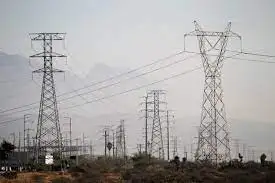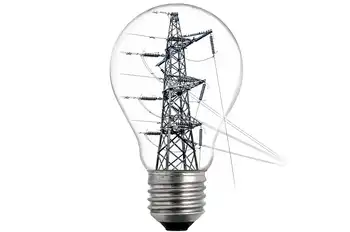AECL waits for Britain to go nuclear
By Globe and Mail
NFPA 70e Training - Arc Flash
Our customized live online or in‑person group training can be delivered to your staff at your location.

- Live Online
- 6 hours Instructor-led
- Group Training Available
Prime Minister Gordon Brown won't name a builder for the reactors when his plans are outlined in Parliament, but the government is expected to defy environmentalists in approving a new generation of power stations to replace the country's aging reactors.
AECL's Candu reactor is already on the short list of technologies being considered for the new construction, so a thumb's up from Britain could potentially lead to a huge contract for the Canadian nuclear agency.
"There's a lot of speculation that they will support a new build (of nuclear plants)," said Jerry Hopwood, vice-president of reactor development at AECL.
At the same time, he said, the government "may announce a process of selecting the technologies that go forward into the next stage of pre-licensing." In other words, it could outline how the short list of suppliers will be cut down to an even smaller group.
Last July, AECL's next generation ACR-1000 nuclear reactor was chosen as one of four technologies that will be considered for Britain's expansion. The country's nuclear regulatory agency also said reactor technologies from General Electric Co., Westinghouse Electric Co. LLC and Areva Group would qualify.
If everything moves forward in a timely manner, the final selection of a builder could be made in a couple of years, with a contract signed some time after 2010, and the reactors up and running by 2017 or 2018.
AECL is hoping its European experience - it recently commissioned a new Candu nuclear plant in Romania - and its reputation for delivering projects on time and on budget, will give it a leg up on its competition, Mr. Hopwood said.
But AECL wouldn't handle a British project on its own. It would likely work in a consortium that includes engineering firm SNC-Lavalin Group Inc., manufacturer GE-Hitachi Global Nuclear Canada Ltd., and component builder Babcock & Wilcox Canada.
This "Team Candu" is the same group that is bidding to build new nuclear reactors in Ontario. The consortium would also include local suppliers in Britain. Last summer, AECL told unions there that more than 70 per cent of the manufacturing for new Candu reactors could take place in that country.
Still, companies that supply the nuclear industry in Canada could expect significant spinoff benefits, were AECL to land a British contract.
"It would obviously be a good thing for the Canadian industry," which is already busy with nuclear refurbishment projects, said Murray Elston, president and chief executive of the Canadian Nuclear Association.
At the same time, the expected vote of confidence from the British government will help the nuclear industry over all, he said. "It just confirms what everybody has been saying recently, (which is) if you want to have a positive impact on the issue of climate change and air pollution, then you're going to have to have nuclear power as part of your mix."
Nuclear critics, however, say the chances of AECL getting the British contract are slim.
Britain was not keen on Candu heavy-water technology in the past and wouldn't likely go for it this time, said Norm Rubin, director of nuclear research at Toronto-based Energy Probe.
In addition, he said, AECL's new ACR-1000 reactor is still unproven, and the company's reputation has been damaged by the recent shut-down of its Chalk River reactor that produces medical isotopes.
On top of all that, the British government has said it wants private utilities to develop any new nuclear plants, and Mr. Rubin said he's not convinced there is any way new nuclear plants can be built without heavy government involvement or subsidies.
Nuclear power just isn't competitive when costs and financial risks are taken into account, he said.











